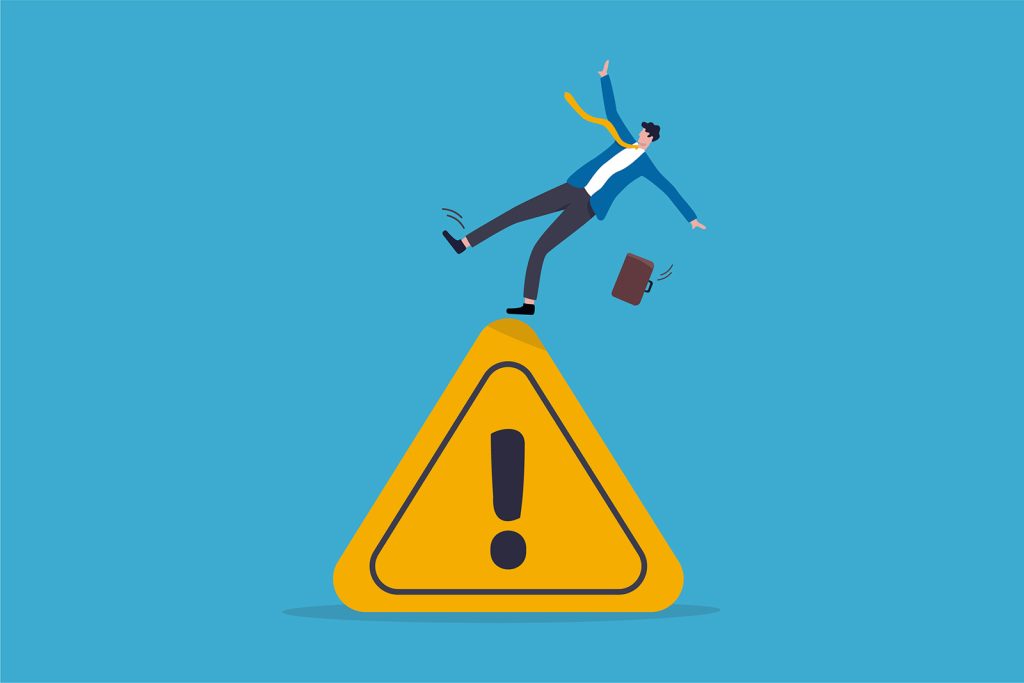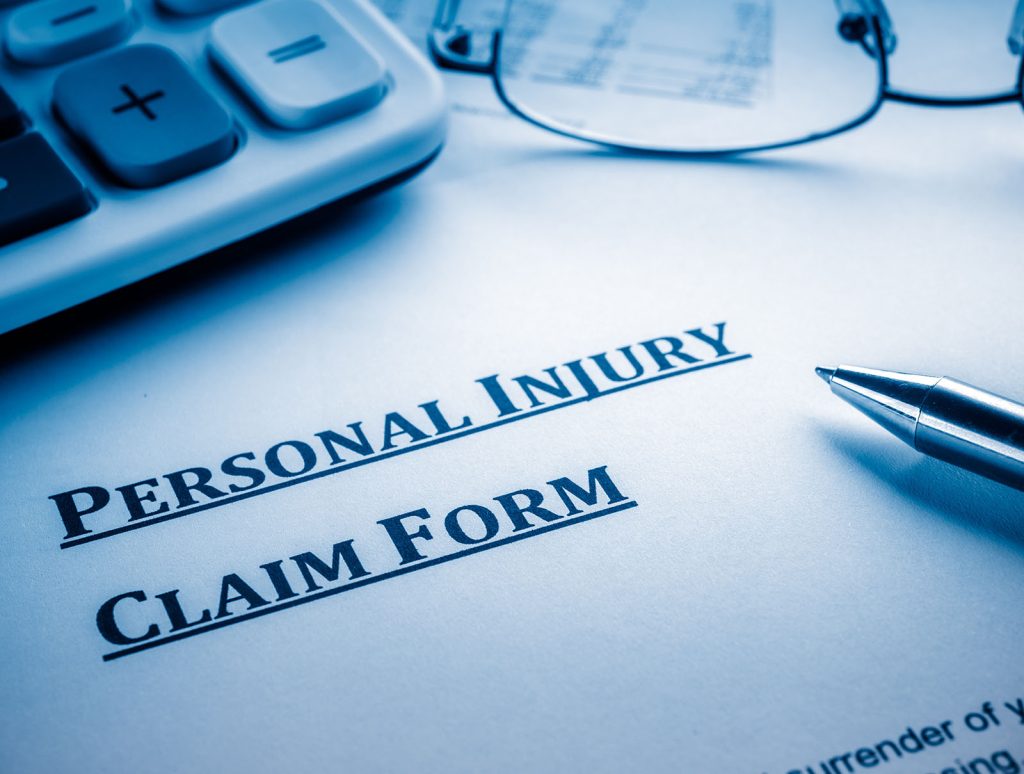- Is a slip and fall accident a personal injury in Alberta?
- How is fault determined after a slip and fall in Alberta?
- How do you negotiate a slip and fall settlement?
- Do you owe a duty of care to trespassers in Alberta?
- How is liability shared after a slip and fall in Alberta?
- How do I write a slip and fall demand letter in Alberta?
If someone slips and falls on your property in Alberta, you could be liable for the injuries. The question is, how do you determine liability after a slip and fall accident?
Quick take: What happens after a slip and fall accident in Alberta.
- You are not liable for any accident caused by a third party on your premises.
- The parties involved may avoid going to court by negotiating a settlement.
- The victim may send a demand letter to the property owner.
- Alberta’s Contributory Negligence Act applies if you do not discharge the common duty of care to a visitor.
- You may be liable for any accident that occurs on your property involving a child trespasser.
- You may have grounds to sue if you can prove property owner negligence.
References

Is a slip and fall accident a personal injury in Alberta?
According to Alberta’s Occupiers Liability Act, if you own property in the province, you owe visitors a duty of care. That means you owe a duty of care to:
- Anyone you permit or empower to enter your property without permission.
- You have a duty to ensure that your property is reasonably safe for visitors and recreational users.
However, section 7 says quote:
“An occupier is not under an obligation to discharge the common duty of care to a visitor in respect of risks willingly accepted by the visitor.”
Additionally, Section 8 reads:
“The liability of an occupier under this Act in respect of a visitor may be extended, restricted, modified, or excluded by express agreement or express notice but no restriction, modification, or exclusion of that liability is effective unless reasonable steps were taken to bring it to the attention of the visitor.”
That means if you notify a visitor of a potential hazard and the person willingly accepts the risk, the law cannot hold you liable for any injuries the individual may suffer.
How is fault determined after a slip and fall in Alberta?
Under provincial laws, the injured party may have grounds to file a lawsuit if any of the following is true:
- You knew or should have known of a dangerous surface on your property.
- The owner or an employee directly or indirectly caused the slip and fall accident. For instance, you could be liable if you cause a spill and someone slips on it.
“Should have known” means that the court considers what a reasonable person should have done given the same situation.
In short, if anyone suffers injury on your property because of negligence, a failure to make your property safe, or because of the actions of an employee. You may face a personal injury lawsuit.
What to do after a slip and fall accident in Alberta?
As mentioned, the property owner owes you a “duty of care.” Consequently, if the premises are not reasonably safe and clear of hazards, the victim should do the following:
- Seek medical attention or call emergency services. Before you comment about your health, consider that some consequences of a fall may take time to manifest. Consequently, if you are planning to take legal action, you should seek medical attention and do not comment about your health until you consult with a doctor. Remember, words like “I’m okay” or “it was entirely my fault” may cost you your lawsuit.
- Gather evidence. In court, the burden of proof is on the claimant. So, at the scene, ensure that (1) You take photos or collect evidence. (2) Get witness testimonies and contact information
- Write down relevant information. You will need the names and job titles of the employees you talked to and other relevant information.
- Contact your insurer if you have a personal injury cover.
When should I hire a slip and fall lawyer in Alberta?
Was the accident a result of your actions, or was it the fault of an employee or the property owner?
If the accident happened through no fault of your own and you suffer injury. You should consult with a slip and fall lawyer immediately.
If you were trespassing at the time of the accident or if you caused the accident. You may not have grounds to sue.
What if you are unsure who was at fault?
If you are unsure who the at-fault party was, we recommend calling the police while at the scene.
Is it hard to prove a slip and fall accident?
Yes. Designating fault after a slip and fall accident can be difficult. Consequently, if you are a commercial property owner, you should install surveillance equipment. This will help you identify scammers and make it easier to determine fault after an accident.
You should also ensure that your property is reasonably safe for visitors and employees.
For property owners, we recommend:
- Install a security system on your property.
- Notify visitors of any hazards that may exist. For example, if you are cleaning the floor, put up a “slippery floor” sign.
- Inspect your property regularly. Look for uneven surfaces, cracks, leaks, or anything else that may lead to a fall.
- Ensure there is ample lighting on your property.
- Document hazard inspection. If the case goes to trial, you may use hazard inspection logs as evidence that you keep your property safe.
- Do not admit fault.
- Contact your insurer and law enforcement if the victim suffers a serious injury.
- Follow up with the victim and correct any flaw that may have caused the slip.
How do you negotiate a slip and fall settlement?

A slip and fall lawsuit can be expensive, and you cannot be sure of the outcome. Consequently, you may choose to settle out of court, or the judge may recommend it. If negotiations fail during the pretrial stage, the issue may go to trial, where a judge or jury will determine liability.
That said. What you should do is:
- Determine the extent of your injuries and contact a slip and fall attorney. In Alberta, the award amount may depend on the extent of your injuries and property owner actions.
- Keep records of treatment.
- Calculate the damages. Consider medical expenses, lost wages, diminished capacity to earn, future earnings, property damage, and other costs incurred because of the slip and fall.
- Remember, depending on what you can prove, the court may award damages including emotional distress, shock, mental anguish, pain and suffering, and so on.
Tip: Figure out what your claim is worth before you file a suit. The best way to do that is by working with an experienced slip and fall attorney
What to remember:
- Bargain and do not take the first offer if it is too low.
- If an insurance adjuster makes a low offer, ask them to justify the offer.
- Do not reduce your demand until you get a reasonable offer.
- Make sure that all agreements are in writing.
Do you owe a duty of care to trespassers in Alberta?
According to the Alberta Occupant Liability Act, you do not owe trespassers a duty of care. However, sections 12.1 and 12.3 read quote:
“Where a trespasser is not a criminal trespasser, an occupier is not liable to the trespasser for damages for the death of or injury to the trespasser unless the death or injury results from the occupier’s willful or reckless conduct. (3) Where a trespasser is a criminal trespasser, no action lies against the occupier for damages for the death of or injury to the trespasser unless the death or injury is caused by the conduct of the occupier. (a) is willful and grossly disproportionate in the circumstances, and (b) results in the occupier being convicted of an offense under the Criminal Code (Canada) that is prosecuted by indictment.”
What if the trespasser is a child?
Property owners owe a duty of care to child trespassers. Consequently, if a child suffers injuries while on your property, the court will consider
(1) The child’s age.
(2) The child’s ability to appreciate the danger.
(3) The burden of the property owner of protecting the child or eliminating the danger.
Section 3 says, quote:
“The occupier has reason to know that a child trespasser is on the occupier’s premises if the occupier has knowledge of facts from which a reasonable person would infer that a child is present or that the presence of a child is so probable that the occupier should conduct himself or herself on the assumption that a child is present.”
How is liability shared after a slip and fall in Alberta?
Alberta’s Contributory Negligence Act says that, quote:
“When by fault of 2 or more persons damage or loss is caused to one or more of them, the liability to make good the damage or loss is in proportion to the degree in which each person was at fault but if having regard to all the circumstances of the case, it is not possible to establish different degrees of fault, the liability shall be apportioned equally.”
What to remember:
- If the accident was your fault, you do not have grounds to sue.
- If two or more persons caused the damage or injury, the court will determine each party’s degree of fault.
How do I write a slip and fall demand letter in Alberta?
Considering that a lawsuit is expensive, the victim may choose to write a demand letter after suffering a fall in Alberta. A demand letter tells the occupant or property owner that you suffered an injury and are willing to settle out of court.
In Alberta, a demand letter must contain:
- A statement of facts that describes how you fell and what caused the fall (liability statement).
- Injuries suffered and owner liability.
- A list of damages suffered.
- A formal demand.
- Evidence to support.
- A “due date”
We recommend consulting with a slip and fall attorney immediately if you decide to take civil action. For property owners, make sure that your property is reasonably safe and that you inform visitors of any potential hazards.
Other Alberta Laws
- Alberta Child Support Laws
- Alberta Civil Laws Explained: How do I File a Civil Claim in Edmonton, Alberta
- Alberta Civil Laws Explained: How long does a civil lawsuit take and what evidence do you need?
- Alberta Civil Laws Explained: What courts deal with Civil Cases in Edmonton?
- Alberta Hit and Run Laws
- Divorce Records Canada: Are Divorces Public Records in Alberta?
- Domestic Violence Laws Alberta
- Personal Injury Claims Explained: What happens if someone slips and falls on your property in Alberta?
- Right of First Refusal Alberta